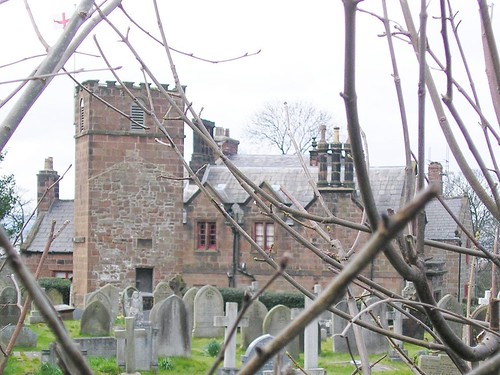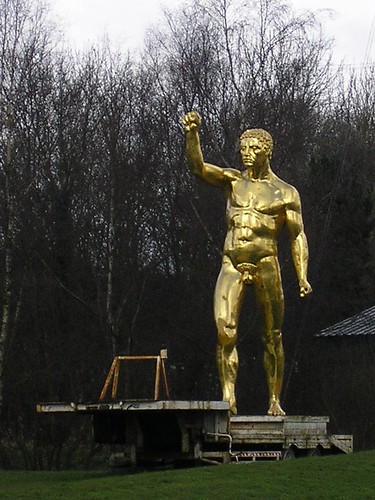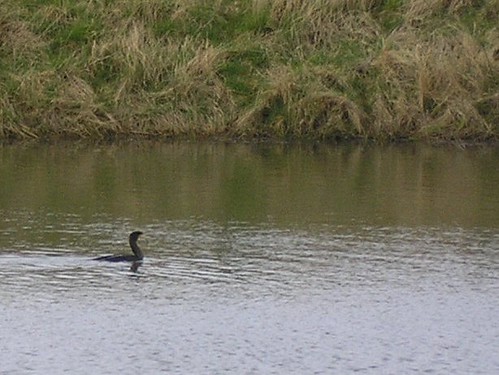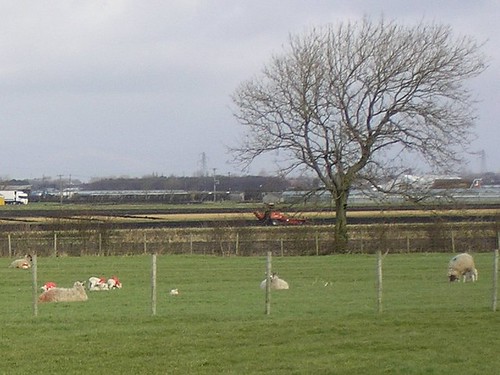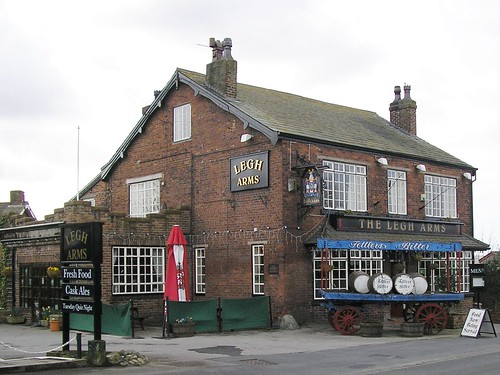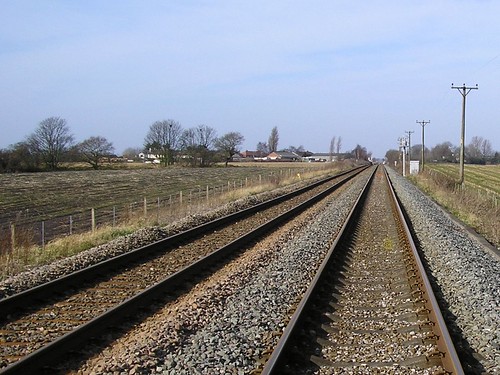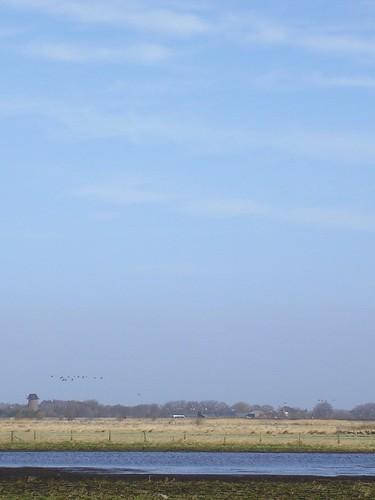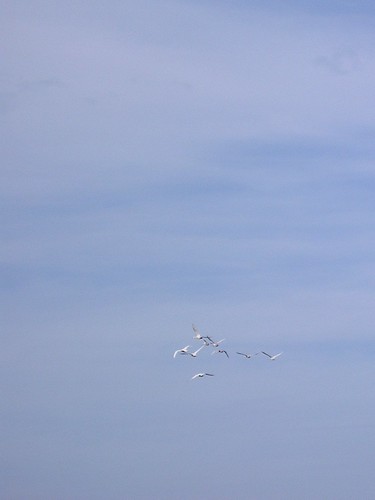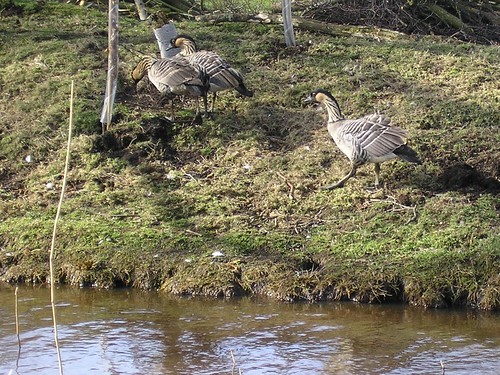Last weeks walk took us to
Wales; just shows that we English don't hold a grudge (Wales had just won the Rugby 6 Nations Grand Slam)
Although the main attractions didn't open until Easter, the walk was an interesting one. Apparently the monks of
Basingwerk Abbey...

...were the first to exploit the power of the stream and their lay successors, in the 18th century, built copper works and cotton mills.
Our walk took us past tiered mill ponds with the usual
cormorants...
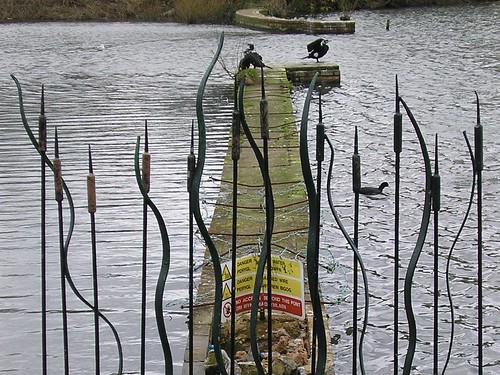
and interesting
sculptures like the bull rushes above and the three little pigs at the start of the walk.
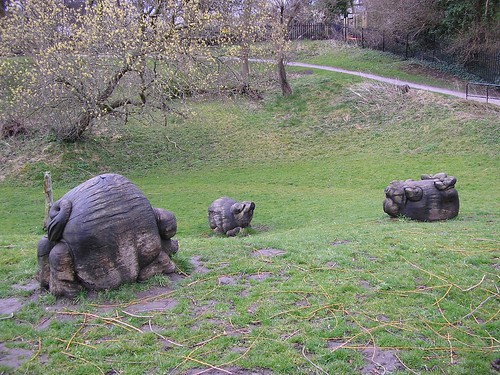
The power of the water can be seen in the picture below where the open grid walkway crosses a mill-race...

The walk took us to the main attraction of the walk. From 600 AD the well of
St Winefride was an object of veneration. Passing the many remains of past industries and water 'features'...
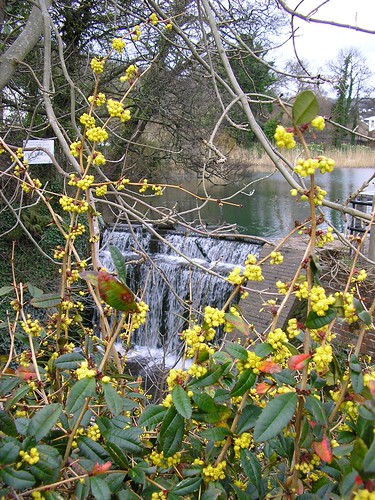
...we eventually arrived.
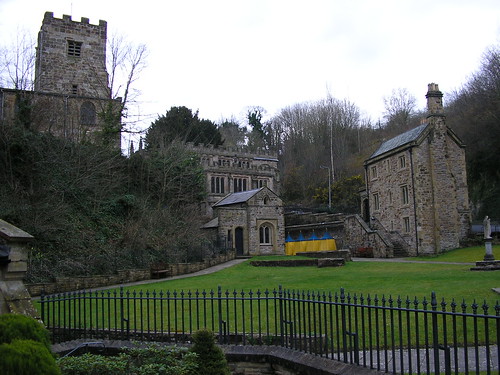
Chris noted the 'Jousting tents' which we later realised were changing tents for those who wished to bathe in the 'waters'.
We were made aware of the story of how Winefride was beheaded by a chieftain whose attentions she refused and whose head was miraculously restored, in the exhibition room attached to the shop/entrance. It was one of the most important shrines in Britain and known as the '
Lourdes of Wales'
The well itself is impressive with water rising in the centre...

Sadly there was 'No Bathing Today'; On a cold spring day a dip was just what Chris and I was looking for.
We decided to make our way back along the old railway line to the
Dee estuary.
Unfortunately the old track was overgrown and we had to retrace our steps to leave the 'Greenfield Valley' via the carved entrance...

A walk along the road to the Dee took us past Welsh Police confiscating motorbikes from 'children'; other bikes appeared as soon as the police had gone.
Tide out, local fishing boats were stranded on the beach...

There was a dark side to this valley which I'm sure the Welsh would prefer to dismiss; earlier industrial works concentrated on the treatment of copper for various uses, some of the pots and pans exported through Liverpool to exchange for West African slaves.
The real down side was our visit to the local pub! Rude staff told us in no uncertain way that food wasn't available; the beer wasn't good and the fabric 'worn' to say the least.
Well worth a return visit but we will take our own refreshments.

